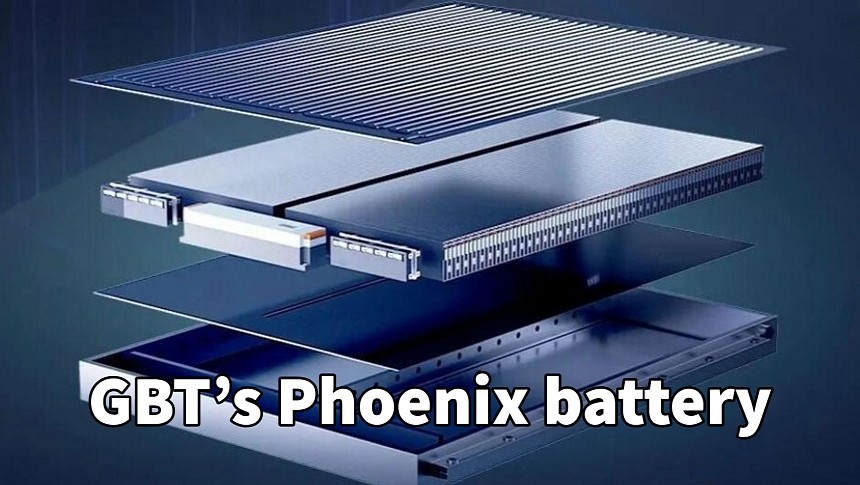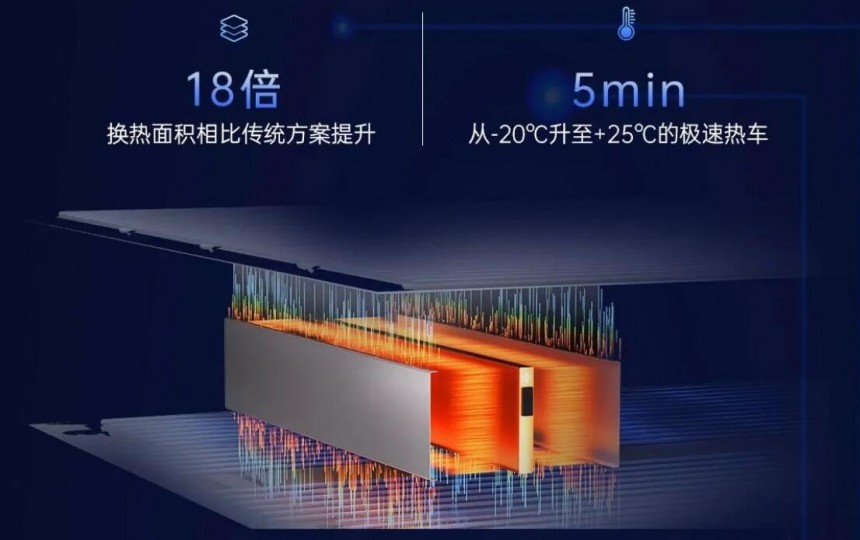One of the most annoying issues plaguing Li-Ion cells in electric vehicles is their low performance in the cold. A Chinese battery startup claims it has solved this problem thanks to a new tech involving superconducting materials and innovative thermal management.
The Li-Ion battery is an essential part of an electric vehicle, and it can determine the car's performance, value, and durability. Although there are many promising battery technologies, Li-Ion cells still have the advantage of high energy density and reasonable durability. There are some issues, of course, such as their instability, which can cause a fire in certain conditions. Li-ion batteries also lose capacity in low temperatures, affecting an EV's range. EV makers tackle both issues with thermal management systems that keep the cells within an optimal temperature range.
Still, thermal management can consume a great deal of energy. It's also not perfect, as it takes time for the battery pack to reach its operating temperature. When an EV is used in winter or polar regions, this means reduced range and performance. Chinese battery startup Greater Bay Technology (GBT) claims it overcame these issues with its Phoenix battery cells. GBT's thermal management system uses superconducting materials, allowing the pack to heat from -4 F (-20 C) to 77 F (25 C) in only five minutes. This allows the Li-ion battery to operate normally and charge 10-80% within six minutes (8C), no matter the temperature outside.
Greater Bay Technology spun out of the Chinese automaker Guangzhou Automobile Group Co. (GAC) and recently entered the Li-ion battery market. The startup surpassed a $1 billion valuation within two years of its funding. Its first-generation batteries already power GAC's Aion electric vehicles, such as the Aion V Plus SUV. The SUV's battery pack uses extremely fast-charging cells capable of fully charging in 15 minutes from a charger with sufficient output.
The second generation Li-ion battery developed by Greater Bay Technology is called Phoenix. It will not only support very-fast charging but will do it regardless of the outside temperature. The startup claims its thermal management system works in extremely cold or hot temperatures without affecting the car's range. The secret lies in the ultra-high thermal conductivity materials used within cells. GBT says its 3D thermal management system allows an 18x faster heat exchange compared to traditional solutions. This translates into a three-times faster temperature control rate.
The Phoenix battery is still in development, but Greater Bay Technology thinks it could power an Aion EV as early as next year. That's a very fast development cycle. The goal is to have a 1,000-km (621-mile) range in a single charge, regardless of the outside temperature. Although battery startups make such promises all the time, it's worth mentioning that GBT has the financial backing of one of the largest automotive companies in China. Although young, the startup has been innovating quickly and already has fast-charging cells in a production EV.
Still, thermal management can consume a great deal of energy. It's also not perfect, as it takes time for the battery pack to reach its operating temperature. When an EV is used in winter or polar regions, this means reduced range and performance. Chinese battery startup Greater Bay Technology (GBT) claims it overcame these issues with its Phoenix battery cells. GBT's thermal management system uses superconducting materials, allowing the pack to heat from -4 F (-20 C) to 77 F (25 C) in only five minutes. This allows the Li-ion battery to operate normally and charge 10-80% within six minutes (8C), no matter the temperature outside.
Greater Bay Technology spun out of the Chinese automaker Guangzhou Automobile Group Co. (GAC) and recently entered the Li-ion battery market. The startup surpassed a $1 billion valuation within two years of its funding. Its first-generation batteries already power GAC's Aion electric vehicles, such as the Aion V Plus SUV. The SUV's battery pack uses extremely fast-charging cells capable of fully charging in 15 minutes from a charger with sufficient output.
The Phoenix battery is still in development, but Greater Bay Technology thinks it could power an Aion EV as early as next year. That's a very fast development cycle. The goal is to have a 1,000-km (621-mile) range in a single charge, regardless of the outside temperature. Although battery startups make such promises all the time, it's worth mentioning that GBT has the financial backing of one of the largest automotive companies in China. Although young, the startup has been innovating quickly and already has fast-charging cells in a production EV.








